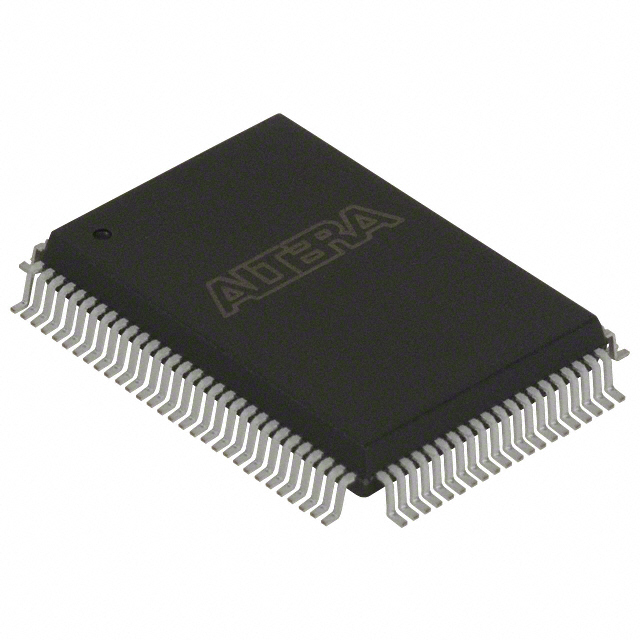In Stock : 0
Please send RFQ , we will respond immediately.









EPM7096QC100-15 Specifications
-
TypeParameter
-
Supplier Device Package100-PQFP (20x14)
-
Package / Case100-BQFP
-
Mounting TypeSurface Mount
-
Operating Temperature0°C ~ 70°C (TA)
-
Number of I/O76
-
Number of Gates1800
-
Number of Macrocells96
-
Number of Logic Elements/Blocks6
-
Voltage Supply - Internal4.75V ~ 5.25V
-
Delay Time tpd(1) Max15 ns
-
Programmable TypeEE PLD
-
DigiKey ProgrammableNot Verified
-
PackagingTray
-
Product StatusObsolete
-
SeriesMAX® 7000
The EPM7096QC100-15 is a specific model of integrated circuit (IC) chip manufactured by Altera (now Intel). It belongs to the MAX 7000 series of programmable logic devices (PLDs). Here are some advantages and application scenarios of this particular chip:Advantages: 1. Programmability: The EPM7096QC100-15 is a PLD, which means it can be programmed to perform specific functions. This flexibility allows for customization and adaptability in various applications. 2. High-density integration: The chip offers a high level of integration, allowing for the implementation of complex digital logic circuits in a single device. 3. Low power consumption: The EPM7096QC100-15 is designed to operate with low power consumption, making it suitable for battery-powered or energy-efficient applications. 4. Fast performance: The chip provides fast propagation delays and high-speed operation, enabling efficient processing of digital signals.Application scenarios: 1. Digital signal processing: The EPM7096QC100-15 can be used in applications that require real-time processing of digital signals, such as audio and video processing, telecommunications, and data communication systems. 2. Industrial automation: The chip can be employed in industrial control systems, robotics, and automation equipment, where it can perform tasks like sensor interfacing, data processing, and control logic implementation. 3. Embedded systems: The EPM7096QC100-15 can be utilized in embedded systems, including automotive electronics, medical devices, and consumer electronics, to implement various functions like data acquisition, control algorithms, and interface protocols. 4. Prototyping and development: The programmability of the chip makes it suitable for prototyping and development of digital circuits, allowing engineers to quickly test and iterate their designs before moving to production.It's important to note that the specific advantages and application scenarios may vary depending on the requirements and specifications of the project.
















